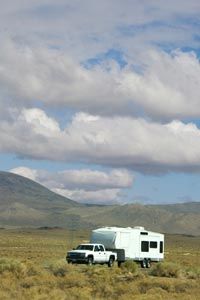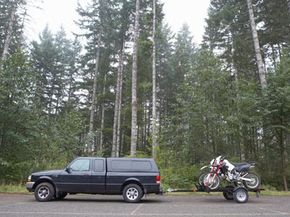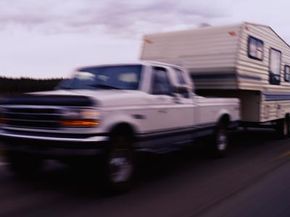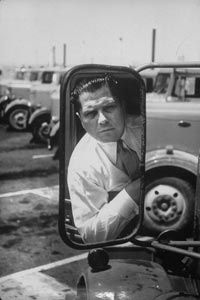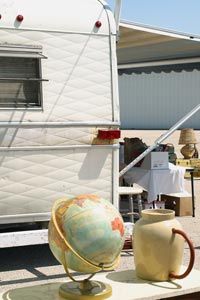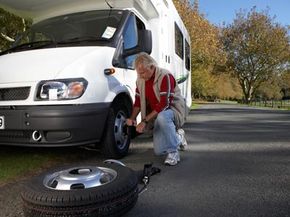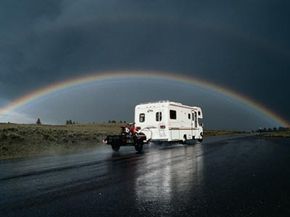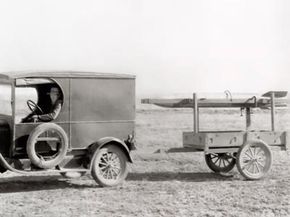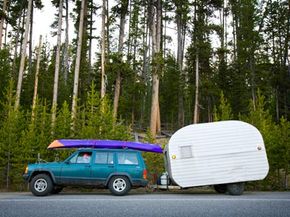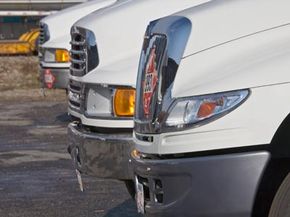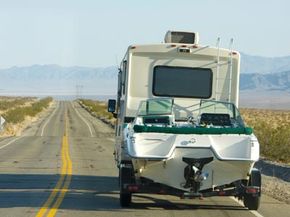Moving heavy, bulky loads down the road, whether it's a camper, a boat trailer or anything else that attaches to the back of a tow vehicle, can be a tricky process. Driving an automobile with another set of wheels hitched up behind it is a lot different than driving an automobile by itself, so there are several issues you have to keep in mind while towing. Small overlooked details will make the ride bumpy and uncomfortable and potentially shift or damage any load you're towing; bigger, more important issues can result in serious situations like jackknifing or flipping, incidents that cause accidents and harm to you and other drivers on the road.
Although it may look like an elaborate setup, there are several easy steps to take to ensure a safe and secure towing trip. Some involve making quick, regular checkups on equipment, while others involve simply being aware of your vehicle's specific towing capabilities. How much weight can your car or truck tow, anyway? Is there any extra gear you need to buy before heading out? How should you adjust your driving technique in order to make the drive safer? For 10 easy tips that make towing more efficient and effective, read on.
Advertisement
